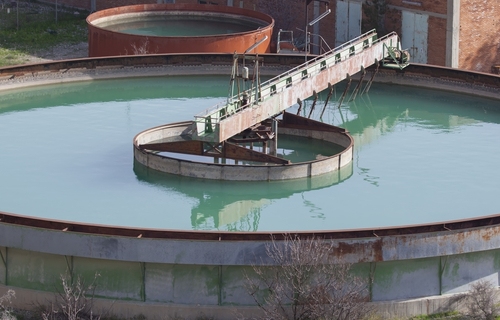This guest article by John Wycliffe reports on an are that is too often overlooked: wastewater treatment.
Where does the ‘sewage’ or wastewater go once you flush, wash off vegetables for cooking, and drain the bathtub? What are the implications of efficient treatment in creating a better society and healthy environments for people in the United Kingdom? The environment is looked after and treated by an unlikely superhero, wastewater treatment and management.
Without proper address, contamination occurs, instigated by metals, rain pollutants, oils, and urban-area runoff. The health of people and the integrity of the environment demand efficient treatment methods.

What is Wastewater?
Sewage is a mixture of water stemming from kitchens, bathrooms, and toilets, combined with wastewater coming from industrial entities and road run-offs. Treatment entails less filtering (less than 0.1 percent of wastewater is solid) but demands great attention and meticulous regard to an assortment of methods.
The Need for Treatment
Untreated water causes great harm to the environment and its inhabitants. Proper wastewater management:
Safeguards the ecosystem, ensuring water that finds nature’s plants and animals are not depleted of rich oxygen due to biodegradation
Protects the ecosystem from eutrophication, a negative result of an abundance of nutrients present in water
Addresses water-borne pathogens that pose risks to people using waters related to public activities, such as swimming and canoeing
Clears obstructions to sewage flow and litter that can impact the environment (riverbed debris pose a fire hazard)
Ensures hotels, resorts, and all public places are not influenced by poor smells and limited usage
Benefits of Wastewater Treatment
Types and direction of water treatment take various courses depending on specific environments and sought end outcomes that are sought. Workers seek to rid sewage of solids, excessive nutrients, metals, and pathogens. Without the aid of water treatment processes:
Toxic agents and chemicals would negatively affect the well-being of wildlife and humans
Waste would find way into river streams and larger bodies of water, harming animals, plants, and the ecosystem
Particular environments would not enjoy the replenishing arrangement of recycled waters, preserving the land and recreational activities sought
Sewer ‘sludge’ would accumulate, creating mass sickness, marring plants and animals
The Future of Water Waste Management
The United Kingdom’s future is aligned with proper, present choices. Waste management officials call for the peoples’ help, an example being the ‘Love Your River’ campaign, directing attention to the link between river and surrounding habitat health, hoping people take better care of their local rivers and neighborhoods.
Additionally, the UK has enacted (FOG) fats, oils, and grease disposal processes, ensuring pubs and restaurants properly rid the environment of collections. Otherwise, FOGs stick to pipes and tunnels, solidifying into entities that can potentially obstruct sewer passageways, creating social complications and costing governments and municipalities a lot of money to remedy.
The next time you take a shower, flush a toilet, or leave the sink faucet running, think about what it takes to ensure the water keeps flowing without affecting your health and that of others. Moreover, cogitate on the commitment paid to ridding rivers and flowing water of sludge and sewage-related debris. It’s easy to forget sewage and proper water management is a production of a structured society; a lot of energy and devotion is placed upon maintaining and improving that infrastructure.
Author John Wycliffe is a researcher with an extensive background in chemistry. Her articles mainly appear on environmental blogs where she enjoys sharing her findings. Visit the chlorine analyser link for more details.
References:
http://www.water.org.uk/home/snap
http://blogs.ei.columbia.edu/2011/04/04/from-wastewater-to-drinking-water/
http://www.defra.gov.uk/publications/2011/03/26/uk-sewage-treatment-pb6655/
Photo: Wastewater treatment tanks from Shutterstock
[source: http://feeds.importantmedia.org/~r/IM-greenbuildingelements/~3/o2w_oBANOnA/]

Leave a Reply
You must be logged in to post a comment.